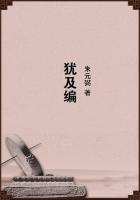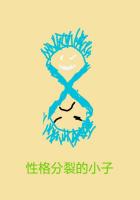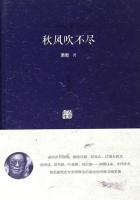A glance at the confirmed inefficients at the bottom demonstrates that they are, as a rule, mental, physical, and moral wrecks.The exceptions to the rule are the late arrivals, who are merely very inefficient, and upon whom the wrecking process is just beginning to operate.All the forces here, it must be remembered, are destructive.The good body (which is there because its brain is not quick and capable) is speedily wrenched and twisted out of shape;the clean mind (which is there because of its weak body) is speedily fouled and contaminated.The mortality is excessive, but, even then, they die far too lingering deaths.
Here, then, we have the construction of the Abyss and the shambles.Throughout the whole industrial fabric a constant elimination is going on.The inefficient are weeded out and flung downward.Various things constitute inefficiency.The engineer who is irregular or irresponsible will sink down until he finds his place, say as a casual laborer, an occupation irregular in its very nature and in which there is little or no responsibility.Those who are slow and clumsy, who suffer from weakness of body or mind, or who lack nervous, mental, and physical stamina, must sink down, sometimes rapidly, sometimes step by step, to the bottom.Accident, by disabling an efficient worker, will make him inefficient, and down he must go.
And the worker who becomes aged, with failing energy and numbing brain, must begin the frightful descent which knows no stopping-place short of the bottom and death.
In this last instance, the statistics of London tell a terrible tale.The population of London is one-seventh of the total population of the United Kingdom, and in London, year in and year out, one adult in every four dies on public charity, either in the workhouse, the hospital, or the asylum.When the fact that the well-to-do do not end thus is taken into consideration', it becomes manifest that it is the fate of at least one in every three adult workers to die on public charity.
As an illustration of how a good worker may suddenly become inefficient, and what then happens to him, I am tempted to give the case of M'Garry, a man thirty-two years of age, and an inmate of the workhouse.The extracts are quoted from the annual report of the trade union:
I worked at Sullivan's place in Widnes, better known as the British Alkali Chemical Works.I was working in a shed, and I had to cross the yard.It was ten o'clock at night, and there was no light about.While crossing the yard I felt something take hold of my leg and screw it off.I became unconscious; I didn't know what became of me for a day or two.On the following Sunday night I came to my senses, and found myself in the hospital.I asked the nurse what was to do with my legs, and she told me both legs were off.
There was a stationary crank in the yard, let into the ground; the hole was 18 inches long, 15 inches deep, and 15 inches wide.The crank revolved in the hole three revolutions a minute.There was no fence or covering over the hole.Since my accident they have stopped it altogether, and have covered the hole up with a piece of sheet iron...
They gave me L25.They didn't reckon that as compensation; they said it was only for charity's sake.Out of that I paid L9 for a machine by which to wheel myself about.
I was laboring at the time I got my legs off.I got twenty-four shillings a week, rather better pay than the other men, because I used to take shifts.When there was heavy work, to be done I used to be picked out to do it.Mr.Manton, the manager, visited me at the hospital several times.When I was getting better, I asked him if he would be able to find me a job.He told me not to trouble myself, as the firm was not cold-hearted.I would be right enough in any case...Mr.Manton stopped coming to see me; and the last time, he said he thought of asking the directors to give me a fifty-pound note, so I could go home to my friends in Ireland.
Poor M'Garry! He received rather better pay than the other men because he was ambitious and took shifts, and when heavy work was to be done he was the man picked out to do it.And then the thing happened, and he went into the workhouse.The alternative to the workhouse is to go home to Ireland and burden his friends for the rest of his life.Comment is superfluous.
It must be understood that efficiency is not determined by the workers themselves, but is determined by the demand for labor.If three men seek one position, the most efficient man will get it.The other two, no matter how capable they may be, will none the less be inefficients.If Germany, Japan, and the United States should capture the entire world market for iron, coal, and textiles, at once the English workers would be thrown idle by hundreds of thousands.Some would emigrate, but the rest would rush their labor into the remaining industries.A general shaking up of the workers from top to bottom would result; and when equilibrium had been restored, the number of the inefficients at the bottom of the Abyss would have been increased by hundreds of thousands.On the other hand, conditions remaining constant and all the workers doubling their efficiency, there would still be as many inefficients, though each inefficient were twice as capable as he had been and more capable than many of the efficients had previously been.
When there are more men to work than there is work for men to do, just as many men as are in excess of work will be inefficients, and as inefficients they are doomed to lingering and painful destruction.
It shall be the aim of future chapters to show, by their work and manner of living, not only how the inefficients are weeded out and destroyed, but to show how inefficients are being constantly and wantonly created by the forces of industrial society as it exists to-day.















